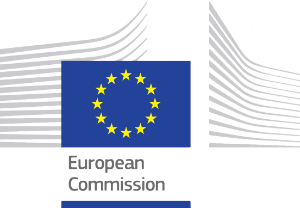- 13 January 2023 from 3:00-4:00 pm CET
- Facilitated by Kleanthis Neokleous and Andreas Papapetrou, CYENS CoE
- Free Registration is open until 11 January 2023 (3 pm) ** HERE *
shorturl.at/rCMQT - The online webinar is limited to 50 participants on a first come, first serve basis. The webinar will be recorded and the recording video will be available in the resources section.
ReinHerit Webinars are aimed at cultural heritage professionals. They will consist of a how to guide for small and medium-sized museum and cultural heritage organizations that documents processes, provides instruction, technical requirements and best practices for co-creation and collaboration between museums and cultural heritage institutions.
The Webinars are organised in the context of the Horizon2020 ReInHerit project, that aspires to disrupt the current status quo of communication, collaboration and innovation exchange between museums and cultural heritage sites, in a sense that it will connect cultural heritage collections and sites, and present Europe’s tangible and intangible heritage to citizens and tourists in their wider historical and geographical contexts. The ReInHerit project is proposing an innovative model of sustainable heritage management, through which a dynamic network will be born; this network comprises cultural heritage professionals, innovation and cultural heritage solution tech experts, researchers, national museums, regional and local museums, and representative managers of Heritage Label sites.
About this webinar:
The webinar will discuss ideas explored in the latest event created as a case study within the framework of ReInHerit: the immersive performance at the Mansion of Hadjigeorgakis Kornesios. This interdisciplinary performance required the collaboration of a diverse group of professionals and invited the audience to take initiative in shaping their experience of visiting the museum. The webinar will present ideas and lessons learned related to the following areas and how these can contribute to the creation and development of similar future initiatives in cultural heritage sites:
- combination of sound-installations with live music performers
- 3D scanning and printing of objects for a multisensory exhibition
- touch-reactive replicas of exhibits not accessible to the public
- remotely controlled movement-triggered sound installations
- site-specific lighting and video art design and projection
- pre-show dissemination strategies on social media
Speakers:
Kleanthis Neokleous
Dr. Kleanthis Neokleous graduated from the University of Cyprus in June 2011, with a Doctorate in Computer Science and has a multi-disciplinary academic background in various fields including Virtual Reality and 3D graphics, Electronic Health (eHealth), Cognitive Psychology, Computational Neuroscience, Machine Learning, Intelligent Diagnostic Systems, Mechanical Engineering, Electrical/Control Engineering and Space Science and Technology. He has several years of experience in project management and he was involved with the conception, design, preparation, writing and coordination of many National and EU research projects. Since June 2019, Dr. Neokleous is employed at the first Research Centre in Cyprus focusing on Interactive media, Smart systems and Emerging technologies (CYENS CoE) as a Multidisciplinary Research Group Leader.
Andreas Papapetrou
Dr. Andreas Papapetrou is a composer, performer, researcher and music teacher. He holds a PhD in Creative Practice - Composition from Trinity Laban Conservatoire of Music and Dance. His compositional output includes works for various ensembles in different genres, ranging from solo to full symphonic orchestra works, as well as works of electro-acoustic and electronic music, and works for theatre, film and dance. He is a classically trained pianist and accordionist, specialised in contemporary music works, cross-arts performance and improvisation. His research interests focus on exploring music primarily as the social activity of performance.

